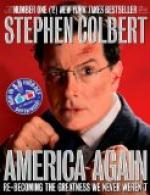As we clambered on, two bushmen all in white, a dog or two, and a woman in a holland riding-dress, the Maluka pointed out the inaptness of the simile.
“A cow’s tail,” he said, “is wanting in expression and takes no interest in its owner’s hopes and fears,” and suggested a dog’s tail as a more happy comparison. “Has she not wagged along behind her owner all afternoon?” he asked, “drooping in sympathy whenever his hopes came to nothing; stiffening expectantly at other times, and is even now vibrating with pleasure in this his hour of triumph.”
Bush-folk being old fashioned, no one raised any objection to the term “owner,” as Dan chuckled over the amendment.
After thinking the matter well out, Dan decided he was “what you might call a tail-less tyke.” “We’ve had to manage without any wagging, haven’t we, Brown, old chap?” he said, unconscious of the note in his voice that told of lonely years and vague longings.
As Brown acknowledged this reference to himself, by stirring the circle of hairs that expressed his sentiments to the world, Dan further proved the expansiveness of the Maluka’s simile.
“You might have noticed,” he went on, “that when a dog does own a tail he generally manages to keep it out of the fight somehow.” (In marriage as Dan had known it, strong men had stood between their women and the sharp cuffs and blows of life; “keeping her out of the fight somehow.”) Then the procession preparing to re-form, as the Maluka, catching Roper, mounted me again, Dan completely rounded off the simile. “Dogs seem able to wrestle through somehow without a tail,” he said, “but I reckon a tail ’ud have a bit of a job getting along without a dog.” As usual, Dan’s whimsical fancy had burrowed deep into the heart of a great truth; for, in spite of what “tails” may say, how few there are of us who have any desire to “get along without the dog.”
We left the water-hole about five o’clock, and riding into the Stirling camp at sundown, found the Dandy there, busy at the fire, with a dozen or so of large silver fish spread out on green leaves beside him.
“Good enough!” Dan cried at the first sight of them, and the Dandy explained that the boys had caught “shoals of ’em” at his dinner-camp at the Fish Hole, assuring us that the water there was “stiff with ’em.” But the Dandy had been busy elsewhere. “Good enough!” Dan had said at the sight of the fish, and pointing to a billy full of clear, sweet water that was just thinking of boiling, the Maluka echoed the sentiment if not the words.
“Dug a soakage along the creek a bit and got it,” the Dandy explained; and as we blessed him for his thoughtfulness, he lifted up a clean cloth and displayed a pile of crisp Johnny cakes. “Real slap up ones,” he assured us, breaking open one of the crisp, spongy rolls. It was always a treat to be in camp with the Dandy: everything about the man was so crisp and clean and wholesome.




